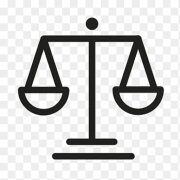Best General Litigation Lawyers in Norway
Share your needs with us, get contacted by law firms.
Free. Takes 2 min.
Or refine your search by selecting a city:
List of the best lawyers in Norway
About Litigation Law in Norway
Litigation in Norway involves legal processes to resolve disputes between parties in a court of law. The Norwegian legal system is based on the civil law tradition, emphasizing written law and statutes. In Norway, the judiciary is independent, and litigation can occur in several types of courts depending on the nature of the dispute, including district courts, appeal courts, and the Supreme Court. The legal process is designed to ensure fairness, transparency, and impartiality, with litigation often being pursued when alternative dispute resolution methods, such as mediation, fail to reach an agreement.
Why You May Need a Lawyer
There are numerous situations in which engaging a lawyer for litigation purposes might be necessary in Norway:
- Contract Disputes: Conflicts involving breach of contracts in personal, commercial, or real estate transactions.
- Family Law Issues: Disagreements over divorce settlements, child custody, or inheritances.
- Employment Disputes: Issues such as wrongful dismissal, discrimination, or workplace harassment.
- Personal Injury Claims: Cases where compensation is sought for injuries suffered due to another party's negligence.
- Property Disputes: Conflicts over ownership, boundary, or land use issues.
- Debt Recovery: Pursuing legal action to recover debts owed by individuals or entities.
- Intellectual Property Disputes: Cases involving patent infringement or copyright violations.
Local Laws Overview
Key aspects of local laws in Norway relevant to litigation include:
- The Dispute Act (Tvisteloven): This law governs civil litigation in Norway, outlining procedures and guidelines for handling disputes in court.
- The Enforcement Proceedings Act (Tvangsfullbyrdelsesloven): Regulates the enforcement of judgments and decisions necessary in debt recovery cases.
- Jurisdictional Structure: Norway's legal system is structured with district courts at the first level, appeal courts for second-instance hearings, and the Supreme Court for selected cases of national significance or legal precedent.
- Use of Mediation: Courts in Norway often encourage mediation before proceeding to full-scale litigation.
- Evidence Rules: Norwegian courts emphasize written evidence, though oral testimony may also be essential in some cases.
Frequently Asked Questions
What is the first step in initiating litigation in Norway?
The first step is usually to file a formal complaint or lawsuit with the appropriate district court. This involves submitting necessary documents and, often, attempting mediation as mandated by the court.
Are there any alternative dispute resolution options available?
Yes, mediation and arbitration are encouraged as part of the legal process to resolve disputes without resorting to a full court trial in Norway.
How long does a typical litigation process take in Norway?
The duration varies depending on the case's complexity, court schedules, and whether parties opt for mediation. However, it can range from a few months to several years.
What is the cost of litigation in Norway?
Costs vary based on the nature of the case, lawyer fees, court fees, and other related expenses. It's advisable to discuss estimated costs with your lawyer upfront.
Can I represent myself in a Norwegian court?
While individuals have the right to self-represent, it's generally advised to engage a lawyer due to the complexities of legal procedures and the benefits of professional expertise.
What are my chances of success in a litigation case?
The chances of success depend on the specific details of the case, the evidence available, and the legal representation. A lawyer can provide a more informed perspective on this.
Does Norwegian law favor any party in litigation?
No, the legal system is neutral and operates on principles of impartiality and justice, seeking fair outcomes based on the merits of each case.
What happens if I lose a litigation case?
If you lose, you may have to pay the other party's legal costs depending on the judgment. You can consult your lawyer about the possibilities for appeal.
Are there specific Norwegian laws that protect my rights during litigation?
Yes, several laws, such as the Norwegian Constitution and the Dispute Act, protect individual rights and ensure fair legal proceedings.
Can a litigation case be settled out of court?
Yes, parties are encouraged to settle disputes outside of court through negotiation or mediation at any stage of the litigation process.
Additional Resources
For further assistance, consider reaching out to:
- The Norwegian Bar Association: Offers resources and a lawyer directory for various legal fields.
- The Norwegian Courts Administration: Provides information about the court system and processes.
- Legal Aid Offices: Offer support for those who may qualify based on financial need or specific case types.
Next Steps
If you require legal assistance for litigation in Norway, consider the following steps:
- Consult with a legal expert specializing in your area of need to understand your rights and options.
- Gather all relevant documentation and evidence related to your case.
- Discuss potential costs and the litigation timeline with your lawyer.
- If necessary, consider alternative dispute resolutions like mediation as a potential path forward.
- Stay informed about your case and maintain open communication with your legal representative throughout the process.
Lawzana helps you find the best lawyers and law firms in Norway through a curated and pre-screened list of qualified legal professionals. Our platform offers rankings and detailed profiles of attorneys and law firms, allowing you to compare based on practice areas, including General Litigation, experience, and client feedback.
Each profile includes a description of the firm's areas of practice, client reviews, team members and partners, year of establishment, spoken languages, office locations, contact information, social media presence, and any published articles or resources. Most firms on our platform speak English and are experienced in both local and international legal matters.
Get a quote from top-rated law firms in Norway — quickly, securely, and without unnecessary hassle.
Disclaimer:
The information provided on this page is for general informational purposes only and does not constitute legal advice. While we strive to ensure the accuracy and relevance of the content, legal information may change over time, and interpretations of the law can vary. You should always consult with a qualified legal professional for advice specific to your situation.
We disclaim all liability for actions taken or not taken based on the content of this page. If you believe any information is incorrect or outdated, please contact us, and we will review and update it where appropriate.
Browse general litigation law firms by city in Norway
Refine your search by selecting a city.















